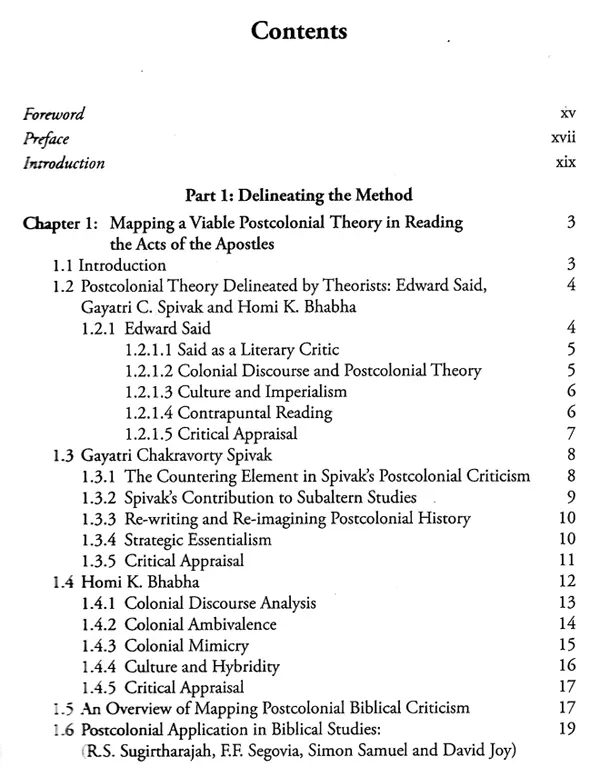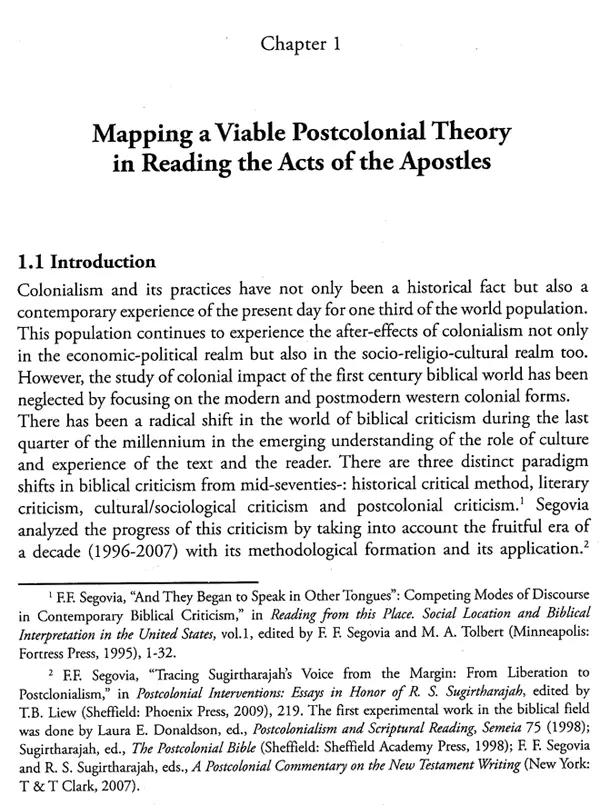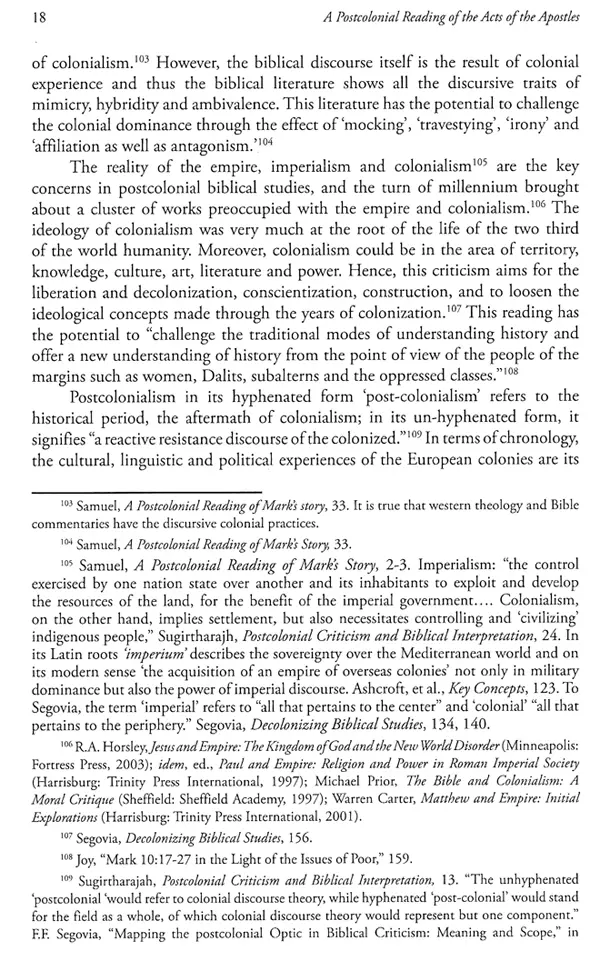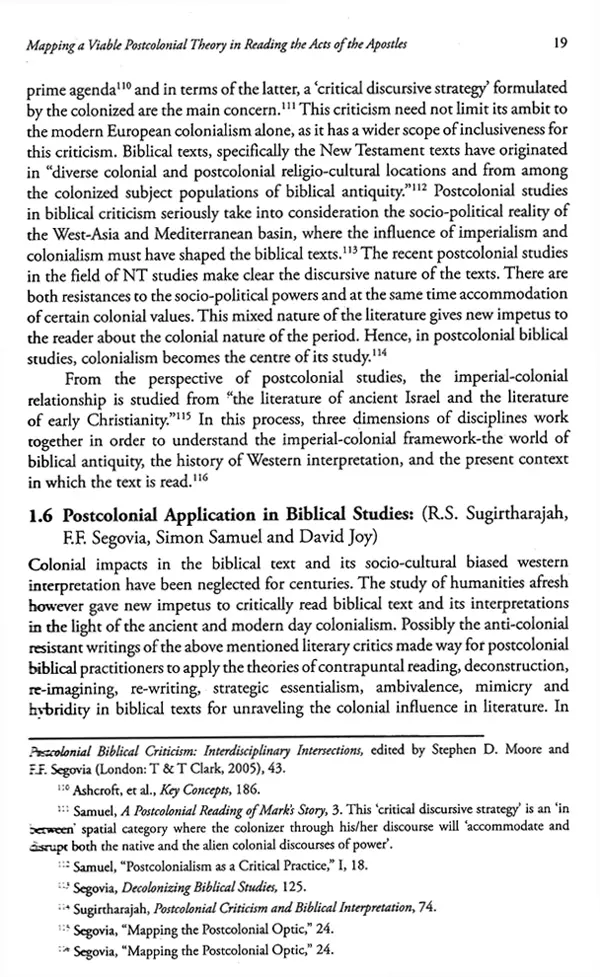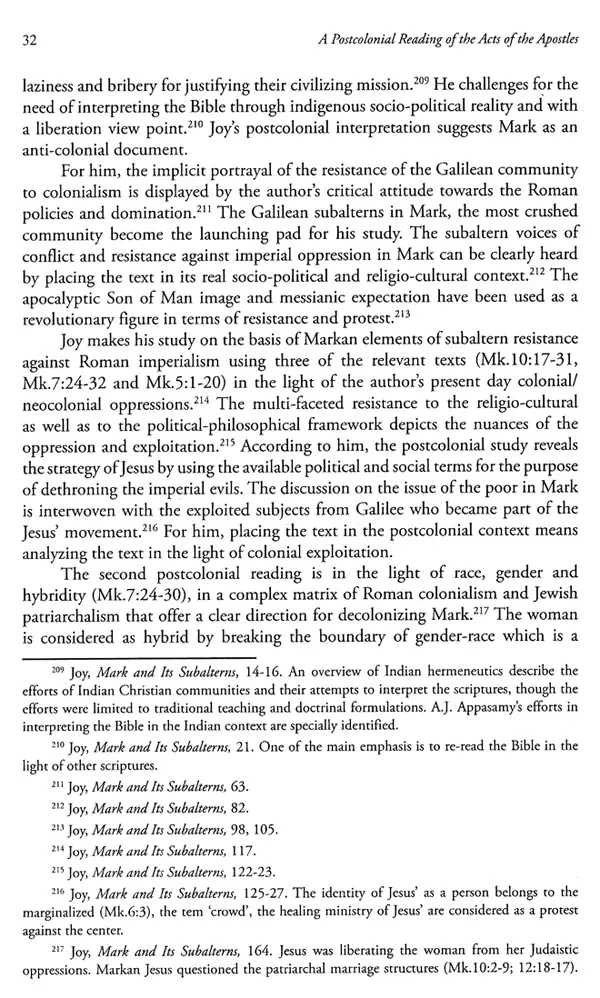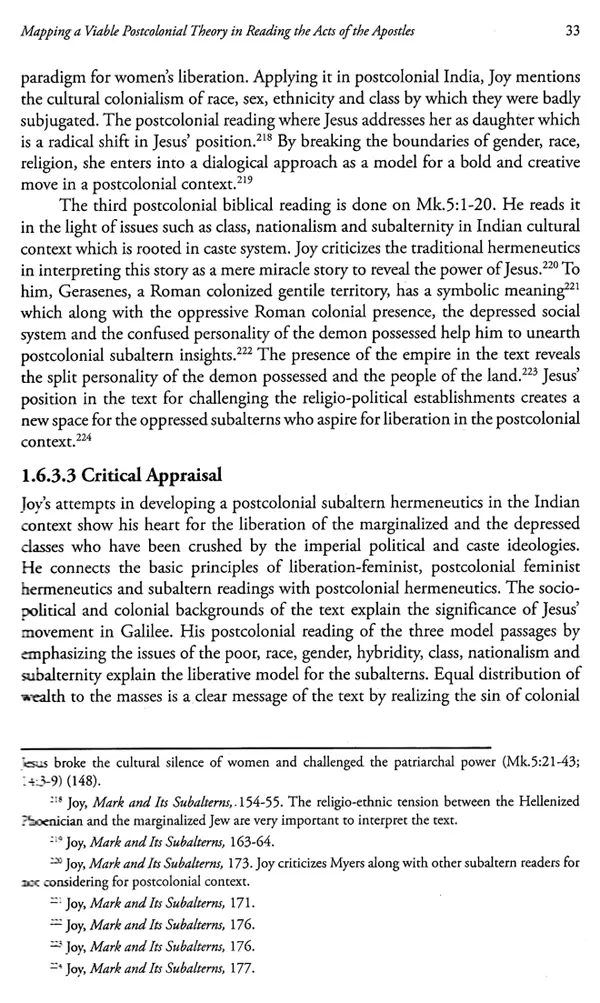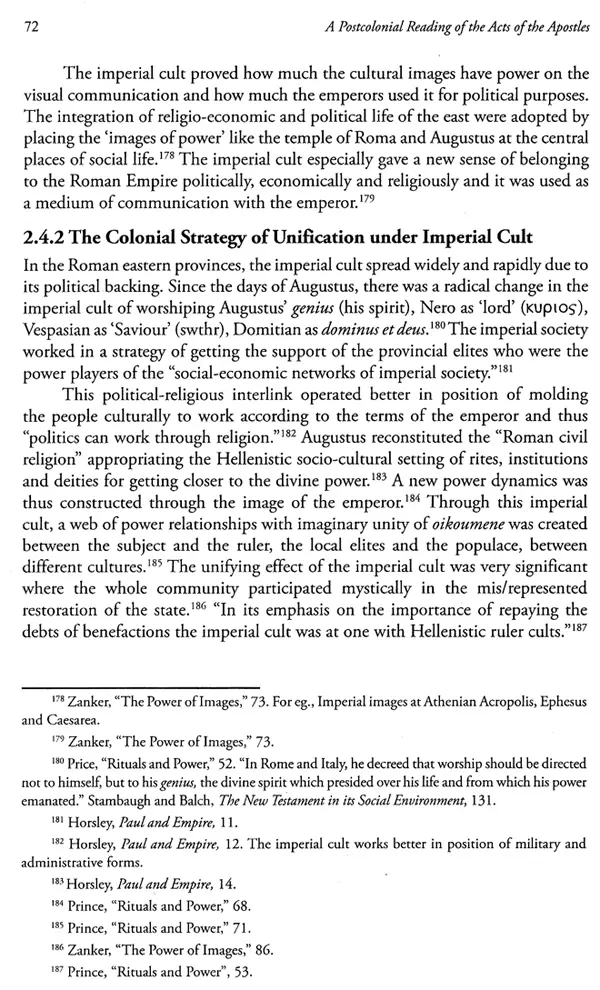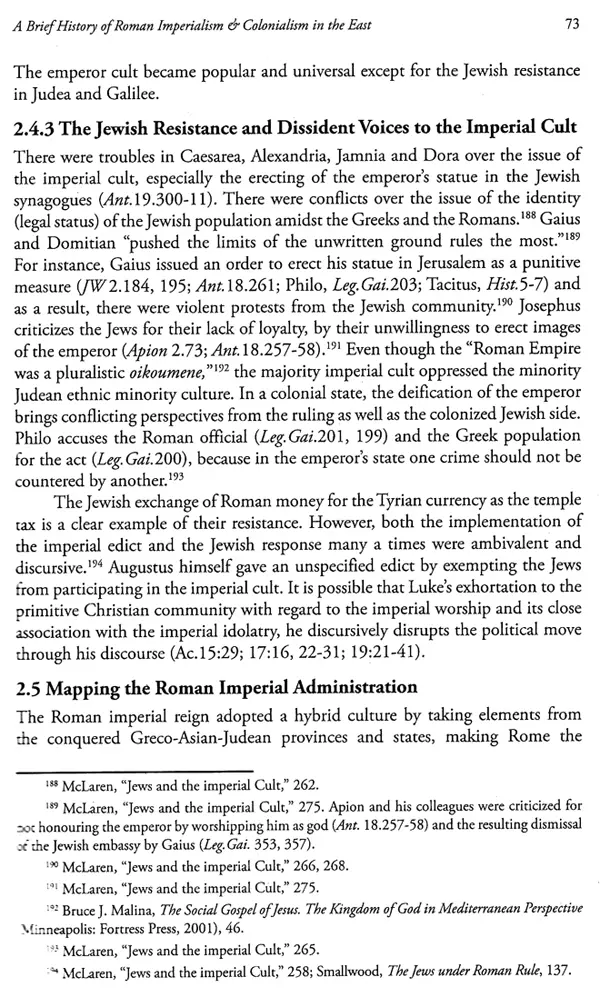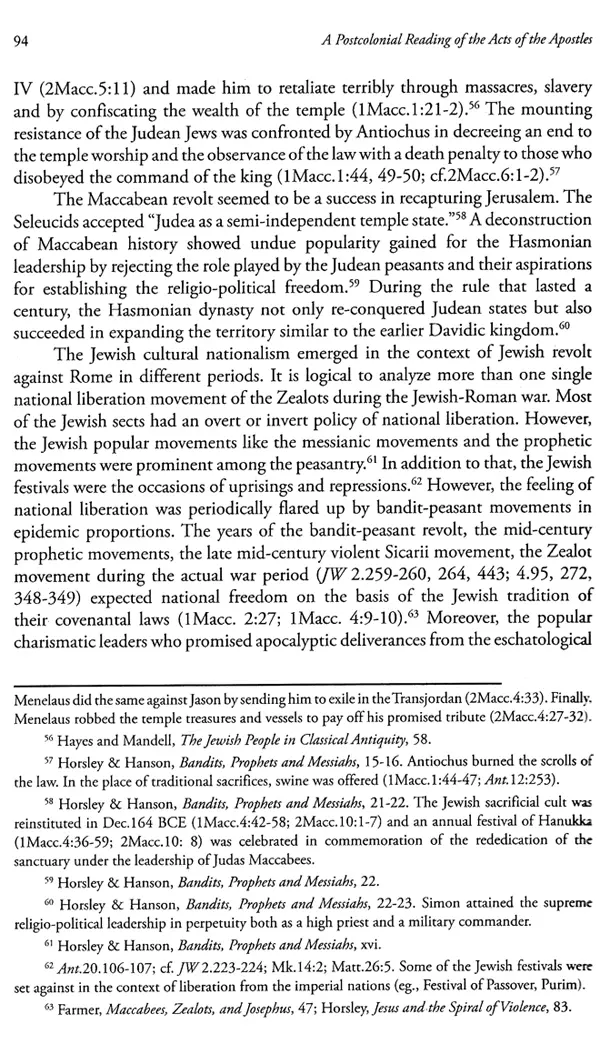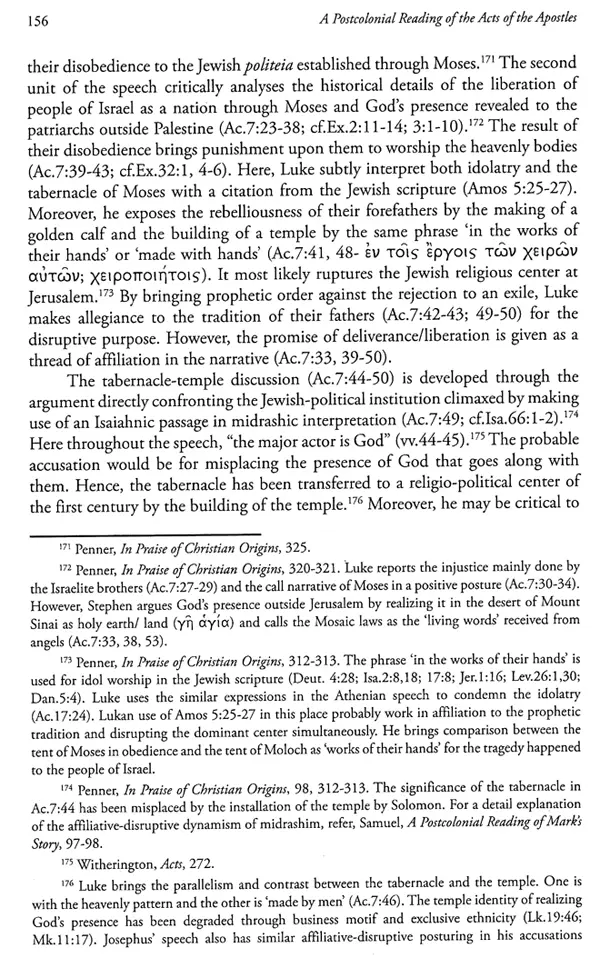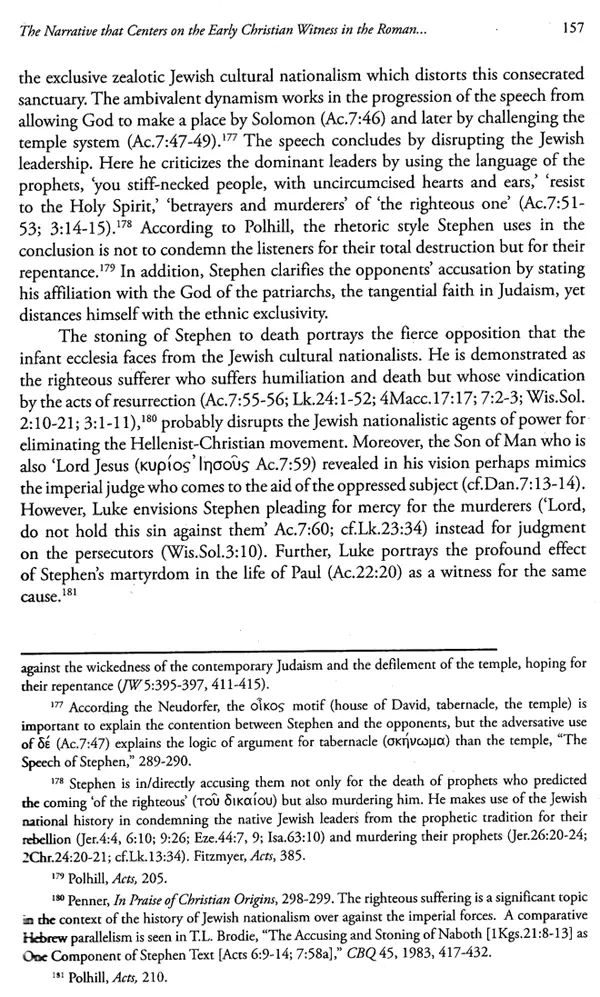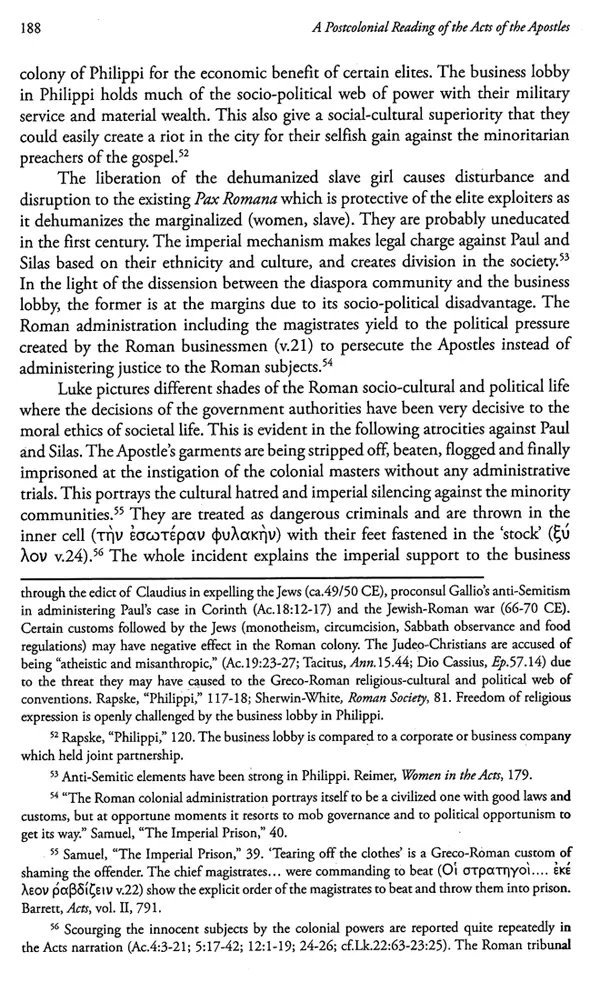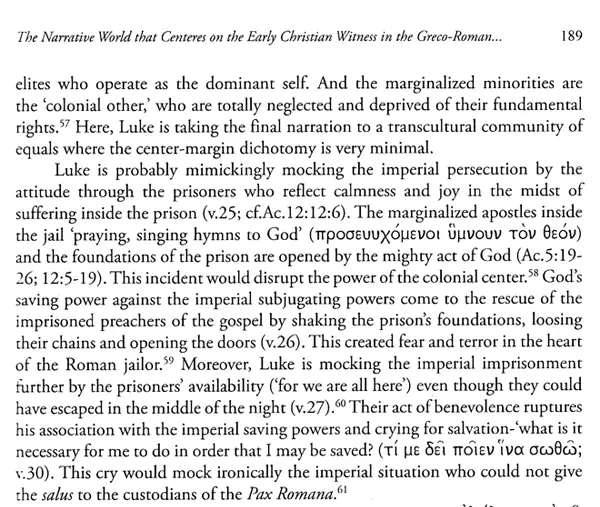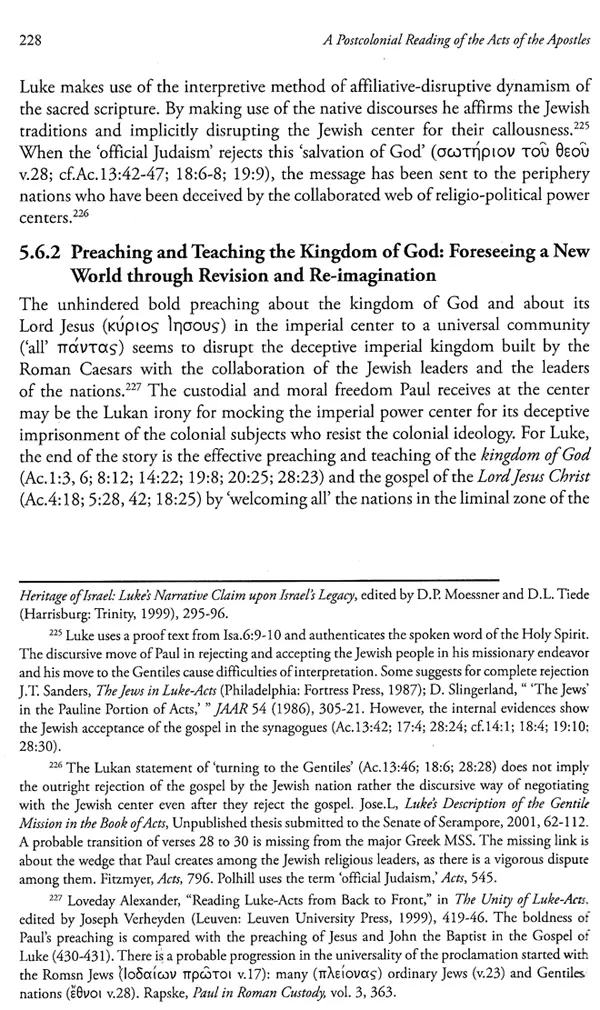
A Postcolonial Reading of the Acts of the Apostles - Implication For Theological Education In India
Book Specification
| Item Code: | UAZ564 |
| Author: | Jose L |
| Publisher: | Christian World Imprints, Delhi |
| Language: | English |
| Edition: | 2018 |
| ISBN: | 9789351482543 |
| Pages: | 295 |
| Cover: | HARDCOVER |
| Other Details | 9.50 X 6.50 inch |
| Weight | 700 gm |
Book Description
The postcolonial reading of the Bible has been an area of interest in biblical studies since the late 1990s. A number of Asian, African, and Latin American scholars have entered this fray and read the biblical books from a postcolonial perspective as a result of their colonial experience of living under or in the aftermath of western colonialism. Some, such scholars discard the Bible as a pro-colonial material used by the western colonial Christian nations for their economic advancement. Others, like the liberation theologians of the 60s and 70s, read the Bible as an anti-colonial resistance literature, but tag it under Postcolonialism for academic currency.
These polar opposite positionings clearly show that the Bible has both pro- and anti- colonial traits. Therefore, some other scholars began to explore what is 'beyond' the pro- and anti-colonial traits in the Bible. They call it the 'Postcolonial' trait of the Bible. 'Post' in Postcolonialism does not suggest polarity or sequentiality, but 'beyond-ness' or 'in-betweenness.' It points to the mimetic, ambivalent, and the hybrid tendency of a discourse that originates in a colonial context from among a colonized subject community that enters into a third space in-between and beyond the colonial masters' and the native nationalist discourses of power, and accommodates and alters both those discourses almost simultaneously.
A Postcolonial Reading of the Acts of the Apostles shows what really transpired in the Acts narrative written within the Roman colonial and the native Jewish cultural nationalistic contexts in the first century AD. Drawing on the theoretical insights of Homi K. Bhabha and other postcolonial theorists and practitioners, the author of this book shows how this early Christian discourse positions itself in a third space in-between the native Jewish nationalistic and the alien Greco-Roman colonial discourses of power; how it accommodates and disrupts both those discourses almost simultaneously; and carves out a unique space of emancipation for an early Christian community from which it launches its 'accommodative and disruptive mission' against colonial Rome and the native Jewish cultural nationalism (Yehudavad).
Jose L., M.Th., D.Th. (New Testament), is Associate Professor of New Testament and Dean of Postgraduate Studies at New Theological College, Dehradun. He is also an ordained minister of Christian Evangelistic Assemblies, New Delhi.
I am delighted to write a foreword for the book entitled, "A Postcolonial Reading of the Acts of the Apostles" by the Rev. Dr. Jose L., Associate Professor of New Testament studies at New Theological College, Dehradun. Our friendship began in the early nineties when he joined for his BD studies at The United Theological College and later MTh studies. He has been an honest and transparent person with a lot of openness in accepting new ideas and conversations.
This book is a revised version of his doctoral dissertation. The uniqueness of this work is that Dr. Jose was able to identify the differences that exist among scholars in viewing the Acts of the Apostles either as a 'Pro-Roman' or as an anti- Roman discourse. In order to support his arguments, the author brilliantly sought the help of scholarly materials through rigorous and systematic library research. The most appealing hypothesis he argues is that in the first century, the socio- economic-political and cultural infrastructure of the empire was challenged by the nascent Christian ecclesia taking a postcolonial stand. The author systematically exposes the mode of resistance of the nascent Christian ecclesia against the Roman Empire. The endeavor indeed offers a new dimension to the study of the Acts of the Apostles from a postcolonial viewpoint.
The monograph also discusses the understanding of the heavenly ascent of the Roman Emperors and similar beliefs in the first century Greco-Roman world. I consider this analysis to be important in terms of developing a possible Christology for the emerging Christian communities in the early church. The exalted Christ has been a major theme discussed in the Acts. Dr. Jose meaningfully uncovers the cultural hybrid in Acts by addressing the radical position of Luke in locating the empire in Acts.
This book, "A Postcolonial Reading of the Acts of the Apostles," is an edited version of the doctoral dissertation submitted to the Senate of Serampore (Serampore University) in the year 2013. Not many changes have been made in the content except for some editing in order to make the book reader friendly. The book of Acts in the New Testament literature has been a fascinating book all through the ages, which people have interpreted it differently either as historical, theological or missional treatise. Recently, New Testament scholars have discovered the significance of the Roman colonialism and Jewish cultural nationalism in the text. However, they have placed it in polar opposite categorizations.
Taking the postcolonial methods of hybridity, mimicry, and ambivalence (strategic essentialism and transcultural hybridity), I have attempted to read the literature of the colonized community responding to its colonial experience beyond the anti and pro polarity. The first century ecclesia affiliates and distances simultaneously from both the Roman colonial powers and native Jewish religio- cultural nationalistic discourses of power in order to carve out a new space of identity. This is a very strategic position adopted by the persecuted ecclesia of the first century and the same position possibly applies in the Indian context where the minority community has been persecuted by the colonial powers.
Pauls trial scenes before the Roman and Jewish political authorities and his speeches explain the postcolonial position of the Christian community in the first century colonial Rome. He affiliates himself with imperial Rome by making one of the amenities of his Roman citizenship and appeal for trial before the Caesars court. The literature also addresses various features of postcolonial literature like ethnicity, border crossing, gender diversity, diaspora, and transcultural position of the minority. A postcolonial ecclesiology is formulated through this study to draw guidelines to the present day Indian ecclesia that faces enormous challenges from the imperial powers.
Luke, in his historical narration, covers forty years of the development of the first- century Christian community where a small group of Galilean marginalized Jews formed the core of Jesus' movement. Later this group was relocated to Jerusalem to form a community of equals over against the oppressive structures of Jewish nationals and the Roman imperial government. From the beginning, the Acts of the Apostles depicts a typical postcolonial nature of the encounters of different cultures. The ambivalent nature of the first century Jewish-Gentile Christian minority towards the Roman colonial powers would give a clear picture of the postcolonial condition of the subjugated group. The community's interaction with the majority Jews in Jerusalem and the Greek nationalities of the Roman Empire seem to have shaped their socio-religious culture and their theological stand.

